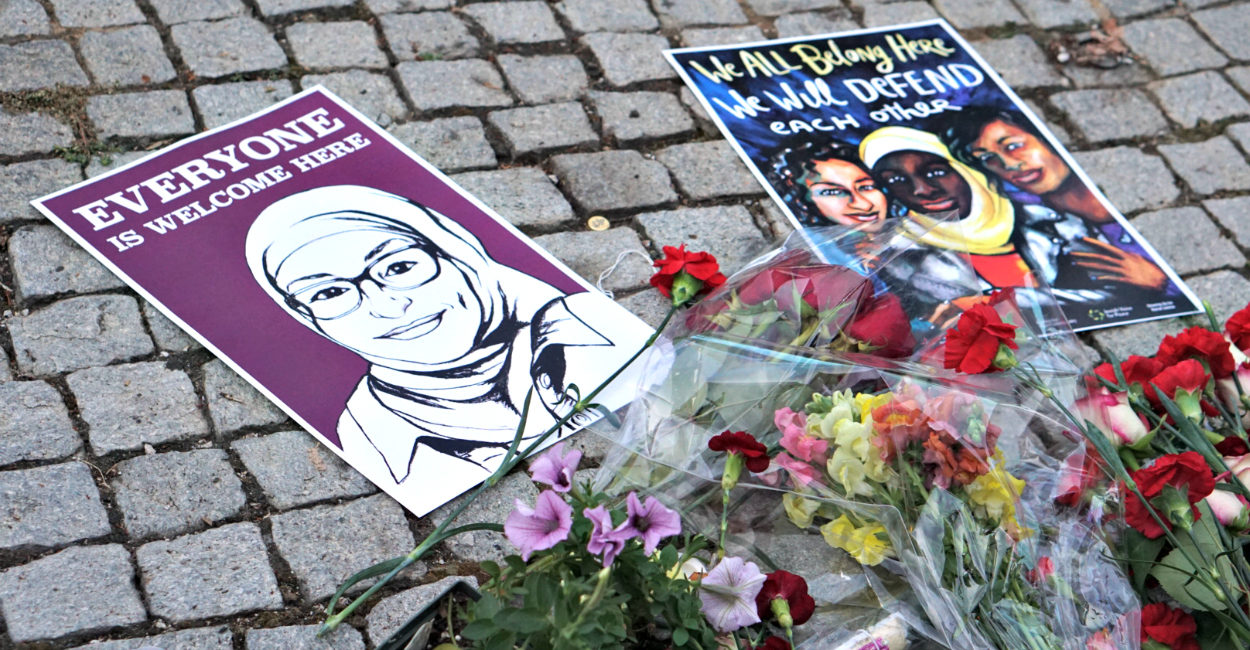When we heard about the tragic killing of 17-year old Nabra Hassanen, we felt compelled to reach out and see how we could help. Through emails and Facebook messages, we discussed what our network could do to support Nabra’s family and her community. We waited to see if the murder would be classified as a hate crime, if Nabra was killed because she was Muslim, so we could determine how best to stand in solidarity with our Muslim brothers and sisters.
We waited.
And that’s when it hit us: as non-Muslims, why does it have to be a hate crime for us to get involved?
Make no mistake. Whether or not Nabra’s religion caused her death matters profoundly. Make no mistake. What we label as “terrorism” and what we don’t matters profoundly.
But there’s another issue at work here that speaks to the deep tensions in American society and that leads to the violence we see in Virginia and Portland. It’s the question of how we define community and relationships in our country. It’s the question of who we consider to be “other” and who we consider to be “one of us.”
Leviticus 19:18 states, “You shall love your neighbor as yourself.” That’s a lofty goal, but it’s also a commandment. Even if it feels like too much, later in the Torah, Deuteronomy 10:19 states, “You shall love the stranger, because you were strangers in the land of Egypt.” Whether we simply see our neighbor as a stranger, or as someone close to our heart, we are commanded to love them. And love is an active word.
If the only reason we would act to support Nabra’s family is if her death was a hate crime, then we are not really living in community with our Muslim brothers and sisters. Nabra was our neighbor. We have friends and colleagues in her mosque. On the macro-level, her killer’s motives matter. On a community level, those motives shouldn’t impact our reaction one bit. A young woman is dead. Her family is grieving. We should support them just as we would if somebody in our own congregation were killed.
The Jewish scholar Martin Buber once wrote, “When two people relate to each other authentically and humanly, God is the electricity that surges between them.” It’s that human connection right now that is missing in this country. We see entire groups of people – Muslims, Republicans, rural Americans, African-Americans — as labels instead of as people.
The implications of this are enormous. A 2017 Pew study found that whether or not an American personally knows a Muslim is a leading indicator as to how they feel about Muslims generally. That same study reports that less than half of all Americans say they know a Muslim. If we want to stand with our Muslim neighbors, we have to change that reality. We have got to build stronger community bonds across religious, racial, and political lines. We need to reach out to our neighbors, even the ones who don’t look like us, vote like us, worship like us or think like us.
And once we build these relationships, we need to bring our full selves to them, checking in and showing up so that when these tragedies occur, we know how to help or how to find out how to help. Rabbi Akiva, a leading contributor to the Mishnah (known as the Oral Torah to Jews), said, “Human beings are beloved because they are created in the image of God. It is an even greater love that this was made known to humanity.” It is not enough for us to remember the sacred humanity within each person — we must actively behave in a way that shows it.
Only then can we build the kinds of communities where people stand together. Where a crime against any of us becomes a crime against all of us.
This article originally appeared in The Times of Israel.

